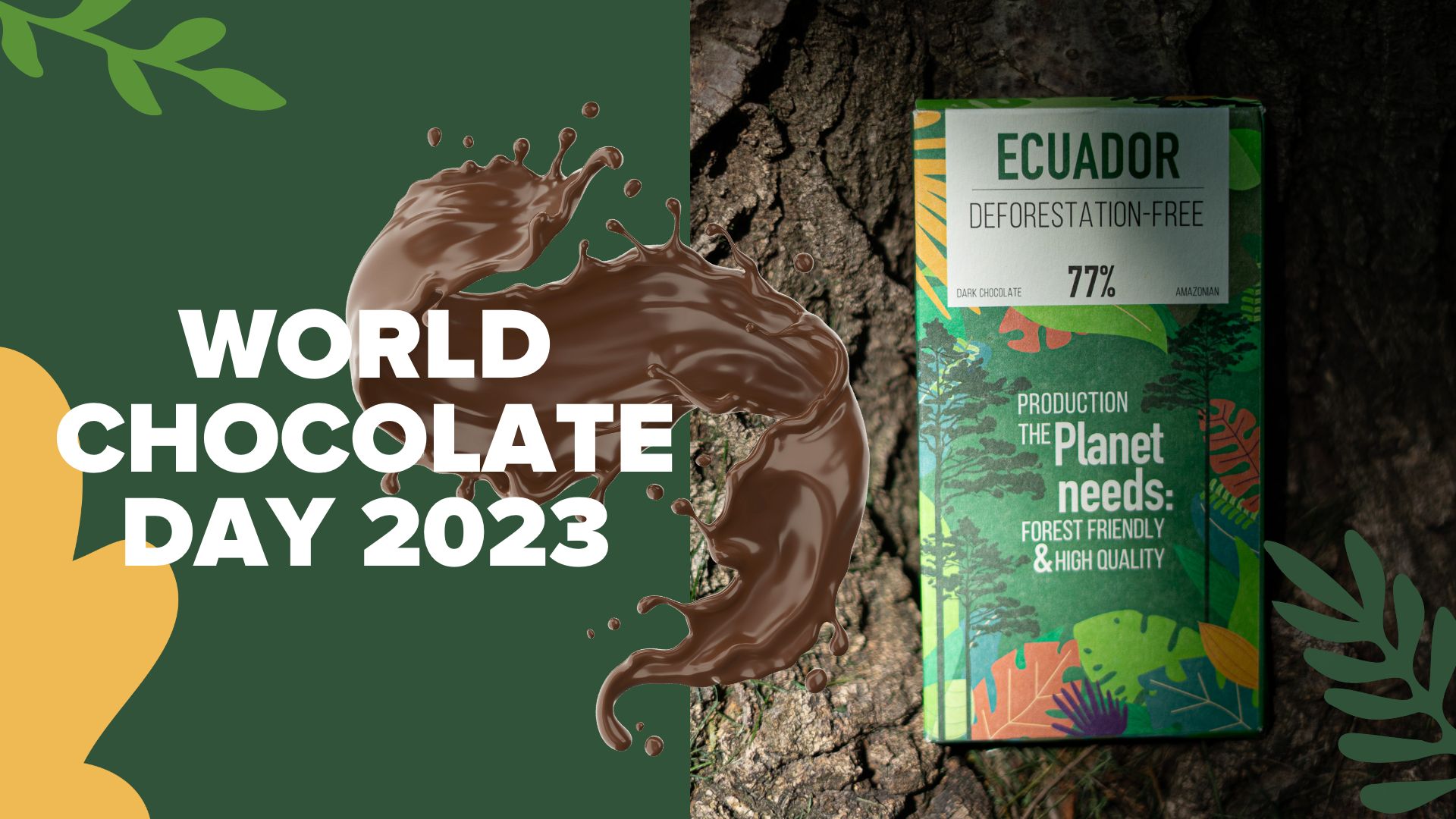
As we celebrate World Chocolate Day, it is crucial to acknowledge the significance of sustainable cocoa production and the integral connection between chocolate and forests. Ecuador, known as the birthplace of cacao, holds a rich history that dates back over 5,000 years. The country's lush forests provide a habitat for diverse flora and fauna, making it one of the most biodiverse nations globally. However, Ecuador's precious Amazon region faces threats from deforestation driven by the expansion of farmlands and other human activities. Preserving the delicate balance between cocoa production and forest conservation is essential for a sustainable future.
The threat of deforestation:
The alarming rates of deforestation pose a severe risk to biodiversity and exacerbate climate change. Globally, approximately 80% of deforestation is attributed to the expansion and mismanagement of farmlands, which produce major commodities such as meat, wood, palm oil, soy, cacao, and coffee. These activities contribute to more than one-third of anthropogenic greenhouse gas emissions. To prevent further deforestation, alternative and sustainable food production and trade policies must be implemented on a large scale.
Ecuador's Forests: A biodiversity haven
Ecuador's Amazon region, which covers 50% of the country, is teeming with remarkable biodiversity. Over 5,000 plant species and 4,800 reptile and amphibian species have been identified, highlighting the region's ecological importance. The forests of Ecuador offer a great potential to support local livelihoods while maintaining the delicate balance of ecosystems. However, the threat of deforestation, driven by the oil industry, logging, and agricultural expansion, looms large. It is vital to protect and preserve these forests for the benefit of both people and nature.
Promoting sustainable cocoa production:
In the pursuit of global environmental and economic sustainability, the agriculture-forests nexus is among the most complex challenges. Addressing deforestation and ensuring sustainable cocoa production require collaborative efforts involving governments, companies, producers, and consumers. By integrating sustainable practices, such as the preservation of traditional knowledge and the adoption of innovative approaches, Ecuador has emerged as a forerunner in reconciling agriculture, forests, and climate. Through partnerships and support, UNDP plays a critical role in promoting sustainable cocoa production and fostering inclusive economic growth while safeguarding the environment.
Additionally, the private sector plays a crucial role in driving the transition towards deforestation-free cocoa production. Companies like Silvacacao, a Belgian company dedicated to the commercialization of high-quality cacao beans, are leading the way. Silvacacao has demonstrated its commitment to sustainability by signing a commercial agreement with the Amazonian Cacao producer organization. Under this agreement, Silvacacao has committed to sourcing 4 metric tons of deforestation-free top-quality cacao beans in 2022, with a further commitment of 6 metric tons in 2023. Such partnerships between private companies and local producers are vital in creating market incentives for sustainable practices and ensuring a deforestation-free supply chain.
On this World Chocolate Day, we are reminded of the intricate relationship between cocoa and forests. Ecuador's rich history as the birthplace of cacao underscores the need to protect and sustain the forests that provide the habitat for this beloved crop.
By embracing sustainable cocoa production practices, we can ensure the preservation of precious ecosystems, mitigate climate change, and support the livelihoods of cocoa producers. Let us savor the sweetness of chocolate while committing to the preservation of Ecuador's cocoa and forests for a sustainable and prosperous future.
As part of UNDP's overall approach to sustainable finance, UNDP Climate & Forests pioneers work to foster investment in deforestation-free commodity supply chains. Working with initiatives like Ecuador’s ProAmazonia, in partnership with private-sector counterparts such as Lavazza and SilvaCacaco, UNDP brings a collective vision to improve production systems and promote quality products like cacao, coffee and palm with high socio-environmental integrity in different countries.


